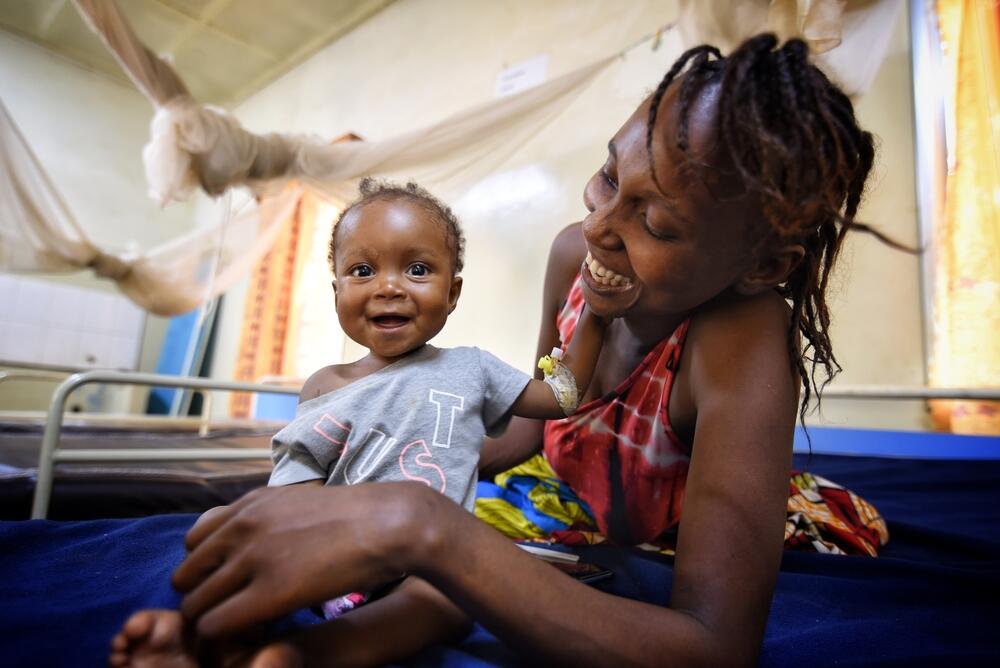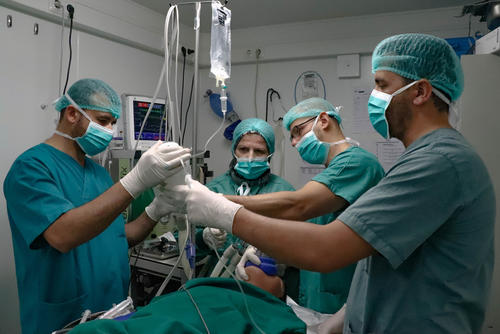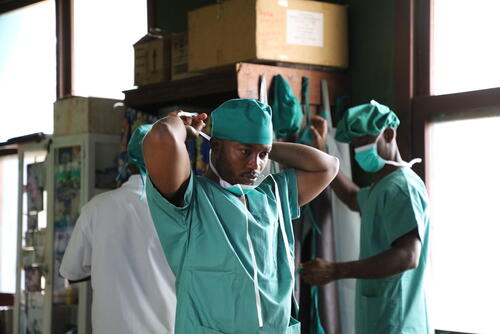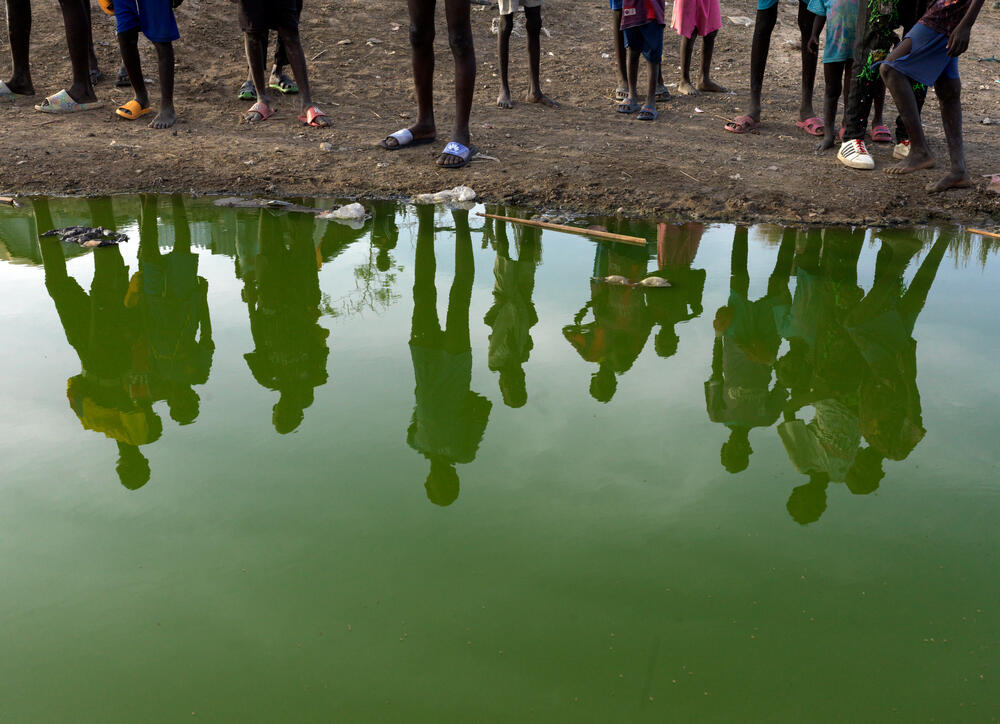Innovation: Four ground-breaking projects that are changing the way MSF works
Every day, Medecins Sans Frontieres / Doctors Without Borders (MSF) teams are working to provide healthcare in incredibly challenging environments. In conflict zones, refugee camps and remote communities, the problems they face demand innovative solutions and fresh approaches.
MSF Scientific Days brings together researchers and innovators from across MSF and beyond to share their work. In celebration of the most recent UK event on 16 May, here are four projects from recent years that are changing how we work.
1. SWOT – The Safe Water Optimisation Tool
In 2013, a deadly outbreak of hepatitis E hit refugee camps in Maban, South Sudan. Hepatitis E is waterborne, but tests showed that the water from communal taps was safe to drink. So why were so many people getting sick?
This mystery is what spurred the MSF team behind the Safe Water Optimisation Tool (SWOT) to do groundbreaking research investigating how and when water becomes contaminated.
They discovered that the official guidelines for safe water were based on data from cities, not refugee camps, and set out to create an online tool that would provide accurate, tailored guidance that can be customised to the different challenges of any camp setting.
The SWOT brings together machine learning and field expertise, and is now being used by water and sanitation teams from six humanitarian organisations in nine countries, including MSF. So far, over half a million people have benefited from the tool!
2. Reaching young people in Sierra Leone
In Sierra Leone, deaths of babies, children, and new mothers are among the highest worldwide. MSF researchers recently visited over 60 villages there to measure the impact of the mother and child health project the team has been running in partnership with the Ministry of Health.
Speaking to more than a thousand households, the team found that in the region where the project was based, health outcomes had improved in all areas since 2016/17, especially where care was available in local health centres as well as hospitals. However, the study also identified areas for improvement.
These insights led to a new project focussed on adolescent health, guided and developed with young people themselves. The project combines sports activities, computer classes, and social space with confidential health services including access to contraception.
The research team now hope that insights from the study will help to shape MSF’s sexual and reproductive health services across the region.
3. Antibiogo - Fighting infections and antibiotic resistance
Biomedical specialists are the unsung heroes of medicine. Around the world, accurate diagnoses rely on their technical expertise. But what happens in conflict zones, refugee camps, or any setting where there aren't trained lab teams?
Without accurate diagnostics, patients might not get the right medication the first time, increasing the risk of potentially fatal antibiotic-resistant infections.
This is the problem MSF microbiology expert Nada Malou and her team set out to tackle. Together they created Antibiogo, a phone app that allows staff to take a picture of an antibiotic susceptibility test, and then uses AI to analyse the results and guide the prescription.
The app is revolutionising diagnostics for MSF teams in the Democratic Republic of the Congo, Jordan, Mali, and Yemen, with more teams planning to adopt it this year.
4. Paediatric palliative care in Bangladesh
Humanitarian work is often about helping people in crisis settings survive. But when medical teams cannot cure the disease or someone is approaching the end of their life, care that prioritises their comfort can bring more ease and dignity.
In Bangladesh, where MSF teams run a hospital in the world’s largest refugee camp, palliative care specialist Rachel Yatzi and her team set out to understand the barriers to providing this care to children and babies.
They found that medical teams cared deeply for their young patients and that taking every measure to try to save them helped staff cope with patient deaths.
Through the research, new training helped teams understand palliative care as an active process of relieving suffering, and a greater emphasis on staff mental health support means that they are more able to support patients and their families.
As a result of the research, Rachel is now helping MSF teams in MSF projects around the world to bring in palliative care – ensuring that, in the race to save lives, the patients who cannot be saved are treated with dignity, compassion and care.
MSF Scientific Days
The MSF Scientific Days international conference is a platform for researchers, innovators, and advocates in humanitarian global health to come together to discuss and challenge research from within the sector.
Find out more about this year's event that took place on 16 May.



